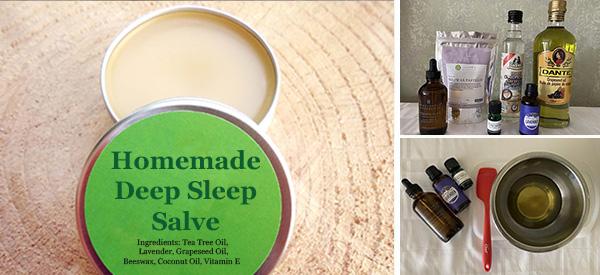
Yohimbine for Erectile Dysfunction: Ancient Bark, Modern Uses
For centuries, people have turned to plants for solutions to intimate struggles. Among the lesser-known but deeply rooted remedies is yohimbine, a compound derived from the bark of the yohimbe tree (Pausinystalia johimbe), native to Central and West Africa. Once used in traditional rituals and healing practices, this bark extract has made its way into the modern conversation about erectile dysfunction (ED)—a condition affecting millions of men worldwide.
But like many natural medicines, yohimbine walks a fine line between helpful and risky. Understanding where it comes from, how it works, and its potential effects is crucial before considering it as a remedy.
What Is Yohimbine?
Yohimbine is an alkaloid extracted from the bark of the African yohimbe tree. In traditional medicine, it was prepared as a tea or infusion and valued for its reputed aphrodisiac properties, believed to restore virility and passion.
In modern times, yohimbine hydrochloride—a purified, standardized form—has been studied and even prescribed in some cases to address erectile dysfunction. Unlike synthetic pharmaceuticals, it’s rooted in a long history of natural use, but it comes with its own cautions.
How Yohimbine Works for Erectile Dysfunction
Erectile dysfunction can have many causes: stress, circulation issues, nerve damage, or even lifestyle factors. Yohimbine appears to work on two key fronts:
- Increases Blood Flow: Yohimbine helps dilate blood vessels, particularly in the pelvic region, which may improve the ability to achieve and maintain an erection.
- Stimulates Nerves: It also affects receptors in the nervous system, heightening sensitivity and potentially boosting sexual arousal.
Unlike some modern medications, which act directly on the mechanics of blood flow, yohimbine influences both the mind and body connection—an approach that echoes traditional plant medicine.
Benefits of Yohimbine
When used carefully, yohimbine may offer several benefits:
- Improved Erectile Function in some men, especially when ED is linked to poor circulation.
- Natural Aphrodisiac Effects, heightening libido and arousal.
- Psychological Support, as some studies suggest it may help reduce performance anxiety linked to ED.
For men seeking a plant-based alternative to pharmaceuticals, yohimbine represents a bridge between ancient herbalism and modern science.
Risks and Side Effects
Yohimbine is powerful, and with that power comes risk. Side effects can include:
- Rapid heartbeat and elevated blood pressure.
- Anxiety, irritability, or restlessness.
- Dizziness, headaches, or nausea.
- Sleep disturbances.
Because of these effects, yohimbine is not recommended for men with heart conditions, high blood pressure, or certain mental health concerns. It can also interact with prescription medications, making professional guidance essential.
Traditional use often relied on whole-bark preparations in small, balanced doses. Today, concentrated supplements can be far stronger, and that difference cannot be ignored.
Natural Alternatives and Supportive Approaches
While yohimbine may be beneficial in some cases, it isn’t the only natural approach to improving erectile health. Many plants and practices support circulation, hormones, and vitality, including:
- Ginseng: Long valued for boosting energy and sexual stamina.
- Maca Root: A Peruvian root that supports libido and endurance.
- L-Arginine (amino acid): Promotes nitric oxide, aiding blood vessel relaxation.
- Lifestyle shifts: Reducing alcohol, quitting smoking, managing stress, and improving sleep all play vital roles.
When combined with healthier daily habits, herbal remedies may offer more sustainable results than relying on a single compound.
Yohimbine vs. Other Natural Remedies for Erectile Dysfunction
| Remedy | Source/Origin | How It Works | Key Benefits | Cautions |
| Yohimbine | Bark of the yohimbe tree (Africa) | Expands blood vessels; stimulates nervous system | May improve erections and libido; traditional aphrodisiac | Can raise blood pressure, cause anxiety, interact with medications |
| Ginseng | Root of Panax ginseng (Asia) | Boosts nitric oxide; improves energy and stamina | Supports circulation, reduces fatigue, enhances sexual performance | May overstimulate, not for those with high blood pressure |
| Maca Root | Root vegetable from Peru | Supports hormone balance; increases energy | Improves libido, endurance, and mood | Generally safe, but effects are subtle and take time |
| L-Arginine | Amino acid found in food/supplements | Converts to nitric oxide, relaxing blood vessels | May aid circulation and complement other remedies | Can interact with heart meds and cause stomach upset in high doses |
This comparison makes it clear: yohimbine is among the stronger plant-based approaches, but it also carries the most risk. Ginseng, maca, and L-arginine, while gentler, may offer safer, long-term support when paired with healthy lifestyle changes.
Final Thoughts
Yohimbine is a fascinating reminder that nature often holds answers to human challenges—answers our ancestors explored long before modern science. For erectile dysfunction, it offers both promise and caution.
Used thoughtfully and with respect for its potency, yohimbine may support some men in regaining confidence and vitality. But it should never be approached casually, nor as a cure-all. Like many strong herbs, its power lies in balance, knowledge, and context.
For those seeking natural support for ED, yohimbine can be part of the discussion—but it is best considered alongside other plant allies, healthier habits, and professional guidance.
You may also like:
 How to Use Stinging Nettle for Enlarged Prostate
How to Use Stinging Nettle for Enlarged Prostate



